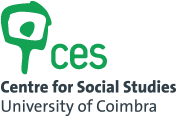Curriculum
Academic Structure
The International Course lasts one year and for certification requires participation in discussion forums, talks, in the Final Work Workshop and the completion of a final work.
The Specialisation lasts one year and for certification requires the completion of the International Course and the completion of two optional virtual seminars of the curricular offer (which include the completion of a final work).
The Specialisation and the International Course in Epistemologies of the South normally take place between the months of April (start) and March (end).
The virtual seminars and the classes of the International Course are offered indistinctly in Spanish or Portuguese. The bibliography is provided in the two official languages of the course, according to their availability. Students' interventions in the discussion forums, talks and workshops can also be made in both languages. Final papers can be submitted in Portuguese or Spanish.
The students of the Specialisation and the International Course have the support of academic tutors who accompany the virtual seminars and supervise the final works.
The International Course also seeks to build another library and a cartography of social movements, where other voices and knowledges find space and visibility, challenging attempts at epistemicide and epistemological subalternisation.
The final work can be, based on Epistemologies of the South, done individually or in groups and can be a written work, a radio programme, a painting, etc.
Once the seminars are finished, students have a period of 4 months to hand in their final work. If students are waiting for the conclusion of a seminar, they also have this period to complete the seminar.
----------------------------------------------------------------------------
Curricular Offering
The virtual seminars will be offered indistinctly in Spanish, Portuguese and English. Likewise, bibliography can be offered in the three official languages of the course. Students’ interventions in discussion forums can also be made in these languages. The final monographic work may be in Spanish or Portuguese.
The international course on Epistemologies of the South, a term coined by Boaventura de Sousa Santos, aims to present and debate the knowledge produced in the South, a basis for reflection on social transformation in current times. In other words, by studying the various possibilities revealed from Epistemologies of the South, this course unit has as its theoretical and methodological objective the overcoming of the Eurocentric model characteristic of modern thought, namely, abyssal thinking.
To know from the South and with the South requires a different political and epistemic orientation. The Global South, the central theme of this course, seeks to recognise and validate knowledge produced from the oppressed, by women and men who have suffered and continue to suffer the injustices, oppressions, dominations and exclusions caused by capitalism, colonialism and patriarchy. Epistemologies of the South, as a metaphor for the exclusion, silencing and destruction of peoples and knowledges, seek to embody the knowledges and experiences of the global South, based on methodological and reflexive assumptions in dialogue, in opposition to any ethnocentric proposal.
From different geo-political and epistemic spaces, the teachers of the course will try to problematise the conditions for a horizontal dialogue between knowledges, towards ecologies of knowledge. These dialogues and the lessons they contain reflect the innovations taking place in the countries and regions of the global South. This demanding commitment presupposes readiness for mutual recognition, intercultural understanding, political and ideological convergence, respect for identity and celebration of diversity, as conditions for a more democratic dialogue in the global South.
The construction of knowledge from the Epistemologies of the South requires other working methodologies. Learning from the South itself, in its diversity, means going beyond conventional academic knowledge. Building dialogues between different knowledges and struggles seeks to give visibility to peoples and social groups whose practises are constructed on the basis of these knowledges. Only then will it be possible to develop alternative narratives that question the impossibility of thinking of difference (sexual, ethnic, racial, class, caste, religious, etc.) with equality, the intimate connection between the local and the global, projects of other economies and other political societies. The second part of the course aims to map, present and discuss a variety of working methodologies anchored in the body of knowledge developed from the perspectives of Epistemologies of the South, privileging the ecology of knowledges and the possibilities of intercultural translation between knowledge born in the struggles.
Workshop to Aid the Preparation of Final Works
This workshop aims to aid in the preparation of the final works for the International Course and the Specialisation in Epistemologies of the South. It supports the identification of the theme of the final work of the course, interconnecting the themes dealt with during the training course with the research-action interests and the students' own paths. It will consolidate the conceptual and methodological tools worked on throughout the course and will tutor the production of the final work, which may be written, audiovisual, performative or of another kind.

